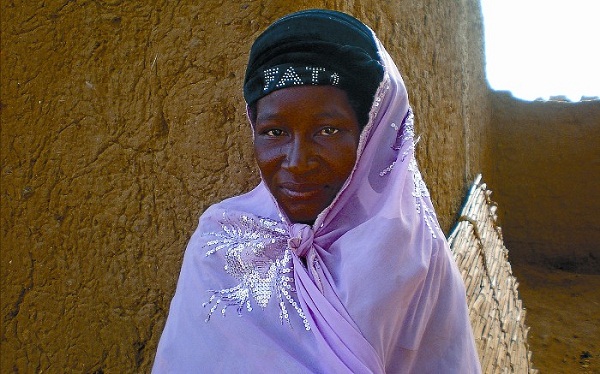
Womens History Month: Hadizatou Mani
One of the winners of the U.S. secretary of state’s 2009 International Women of Courage Awards was just 12 years old when she was sold as a slave.
“I was negotiated over like a goat,” said Hadizatou Mani of the Republic of Niger. She was sold for $500 in 1996.
Mani was a slave because her mother was a slave. Her status — and her future, and the future of her children — was attached to her caste. She was purchased by a man in his 60s who beat her, sent her to work long hours in the field, raped her and made her bear him three children.
Although Niger criminalized slavery in 2003, Mani’s master first kept the news from her and later tried to convince village authorities that she was not a slave but one of his wives. When Mani finally won her “certificate of liberation” in 2005 and married a man of her choosing, her former master charged her with bigamy. She was sentenced to prison for six months.
Mani worked with the local nongovernmental organization (NGO) Timidria, and later with the British NGO Anti-Slavery International, to bring her case to the Economic Community of West African States (ECOWAS), charging that the government of Niger had not successfully protected her rights under its anti-slavery laws.
“It was very difficult to challenge my former master and to speak out when people see you as nothing more than a slave,” Mani said in comments published by Anti-Slavery International. “But I knew that this was the only way to protect my child from suffering the same fate as myself. Nobody deserves to be enslaved. We are all equal and deserve to be treated the same. … No woman should suffer the way I did.”
Despite direct and indirect pressure to drop her suit, Mani pressed forward with her case. On October 27, 2008, ECOWAS condemned Mani’s enslavement, held that the government of Niger had not protected her rights and ordered it to pay her a fine of 10 million CFA (Communauté Financière Africaine), or approximately $19,800. The ECOWAS court decision is a strong message to the government of Niger and other countries in the region that anti-slavery laws must be more than words on paper.
Before this verdict, Nigerien NGOs such as Timidria had suggested that Niger’s anti-slavery laws are a “charm offensive” and were “passed for Westerners.” Mani’s victory was not only for herself, but for the people still enslaved in Niger, offering them a bright ray of hope.
Mani was selected for the U.S. State Department’s International Women of Courage Award, instituted in 2007 to honor exceptional courage and leadership in advocating for women’s rights and advancement.
Courtesy of America.gov




